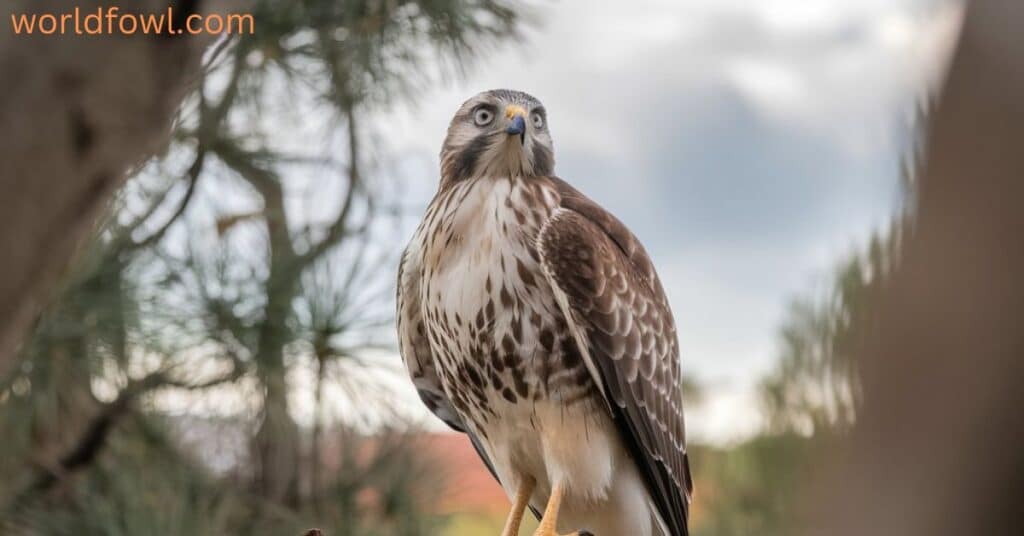The question “Do hawks eat squirrels?” might arise as you observe these majestic birds soaring overhead. The answer is a resounding yes—many hawk species actively hunt squirrels, taking advantage of their availability in various habitats. This article will explore the dynamics of hawks and squirrels, their ecological roles, and the factors that make squirrels a preferred prey for hawks.
Introduction to Hawks and Their Role in Ecosystems
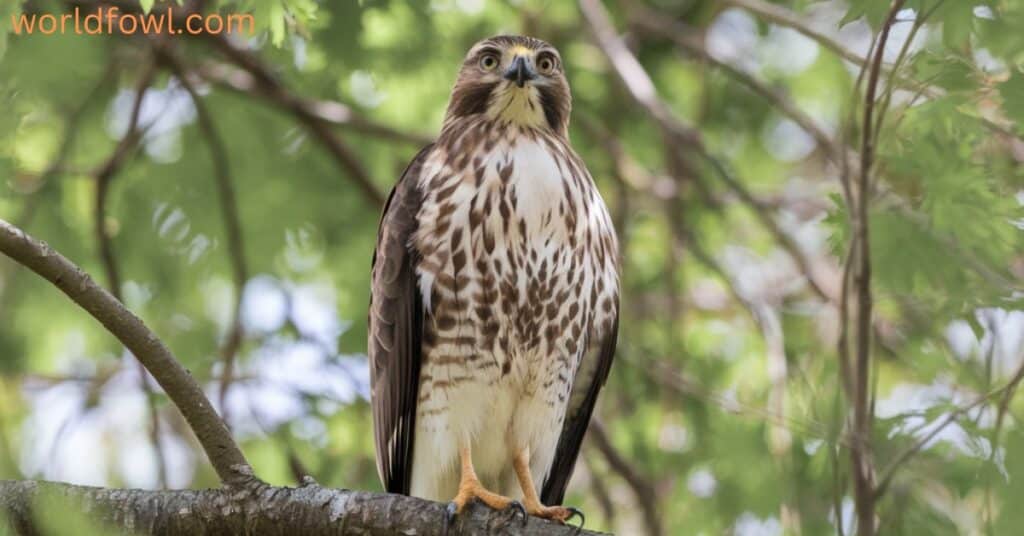
Hawks are powerful birds of prey belonging to the family Accipitridae, which encompasses a variety of species renowned for their exceptional hunting abilities. These birds have evolved distinct adaptations that enable them to thrive as apex predators in diverse environments. Here are some key features that highlight the predatory prowess of hawks: ( Do Hawks Eat Squirrels )
- Exceptional Eyesight: Hawks have some of the best eyesight in the animal kingdom. Their large eyes are equipped with a high density of photoreceptor cells, allowing them to spot movement from great distances—sometimes up to a mile away. This acute vision helps them detect squirrels and other prey hidden among trees or in tall grass.
- Strong Talons: Hawks possess powerful, curved talons that are perfectly adapted for grasping and killing prey. These talons can exert significant pressure, allowing hawks to capture and hold onto struggling squirrels securely.
- Adaptable Diet: Hawks are opportunistic feeders, meaning they will eat whatever is available in their habitat. This flexibility in diet allows them to switch prey based on abundance, which is crucial for survival in varying environmental conditions.
In summary, hawks are integral to maintaining the balance within ecosystems. They help control populations of small mammals, birds, and other creatures, ensuring that no single species dominates and that biodiversity is preserved.
you may also like : Yellow Birds in Georgia – A Complete Guide
Why Hawks Target Squirrels
Hawks find squirrels to be a prime food source due to several compelling reasons: ( Do Hawks Eat Squirrels )
- High Nutritional Value: Squirrels are rich in protein and fat, essential nutrients for hawks, especially during the colder months when energy demands increase. The high caloric content of a squirrel makes it a valuable meal that supports the hawk’s active lifestyle.
- Abundance in Various Habitats: Squirrels thrive in urban areas, forests, and parks, making them a readily available food source for hawks. Their ability to adapt to human environments means that hawks often find them in suburban neighborhoods as well as in more natural settings.
- Daytime Activity: Squirrels are diurnal, meaning they are active during the day. This behavior aligns perfectly with hawks’ hunting patterns, allowing hawks to easily spot and target squirrels when they are most vulnerable.
Moreover, the consistent presence of squirrels in various environments provides hawks with a reliable food source, further enhancing their hunting efficiency.
Common Hawk Species That Hunt Squirrels
Several species of hawks are particularly known for their squirrel-hunting abilities. Understanding these species can provide insights into the hunting dynamics at play. Here’s a closer look at some of the most common hawks that hunt squirrels.( Do Hawks Eat Squirrels )
Red-tailed Hawk (Buteo jamaicensis)
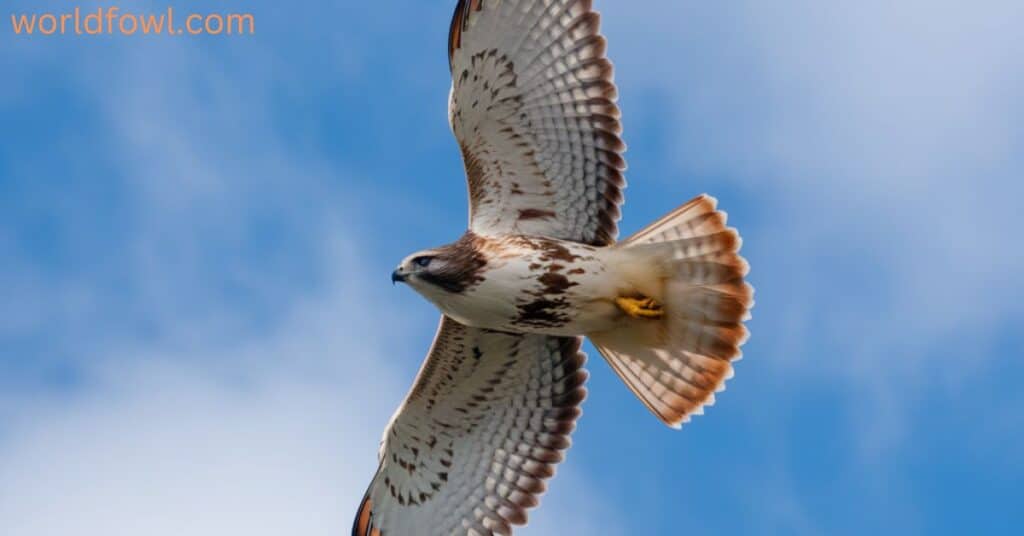
- Description: The Red-tailed Hawk is one of the most recognized hawk species in North America, identifiable by its broad wings and distinctive reddish tail. Adults have a wingspan of about 45 to 52 inches and weigh between 1.5 to 3.5 pounds.
- Hunting Style: Red-tailed Hawks employ a “sit-and-wait” strategy, perching high in trees or on poles to survey the ground for movement. Once they spot a squirrel, they can swoop down at remarkable speeds, often reaching 120 mph during their dive.
- Diet: While squirrels are a favorite meal, Red-tailed Hawks also consume rabbits, mice, and birds, showcasing their flexible diet. This adaptability allows them to thrive in various habitats, from urban areas to open fields.
Cooper’s Hawk (Accipiter cooperii)
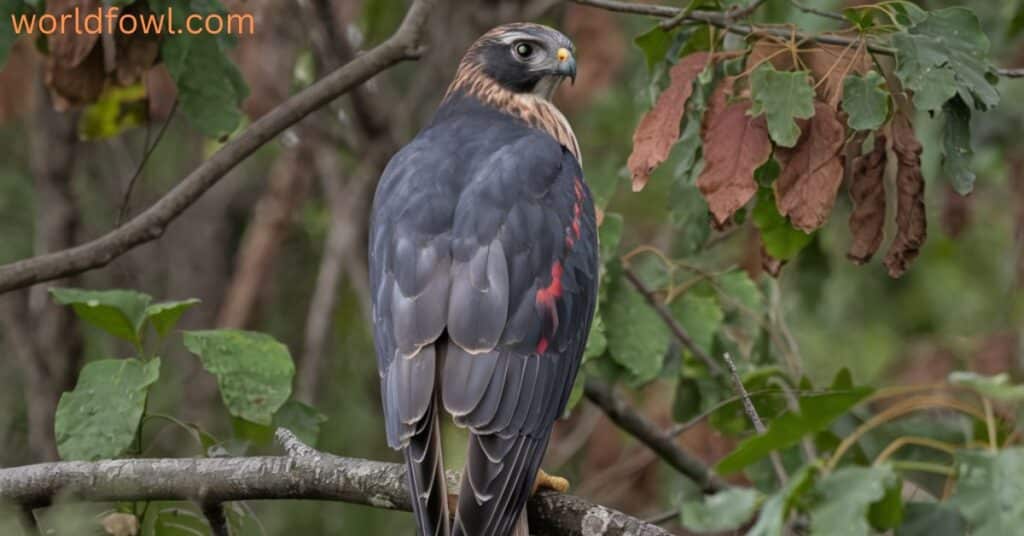
- Description: The Cooper’s Hawk is a medium-sized hawk known for its agility and sleek build. They have a wingspan of about 29 to 37 inches and weigh between 1 to 2.5 pounds.
- Hunting Style: Cooper’s Hawks excel in forested areas, where their ability to maneuver through trees gives them an advantage. They often ambush squirrels or chase them through dense foliage, relying on their quick reflexes to catch prey.
- Diet: While primarily targeting birds, Cooper’s Hawks will hunt squirrels when available, especially when their preferred avian prey is less abundant. This flexibility in diet allows them to adapt to varying environmental conditions.
Northern Goshawk (Accipiter gentilis)
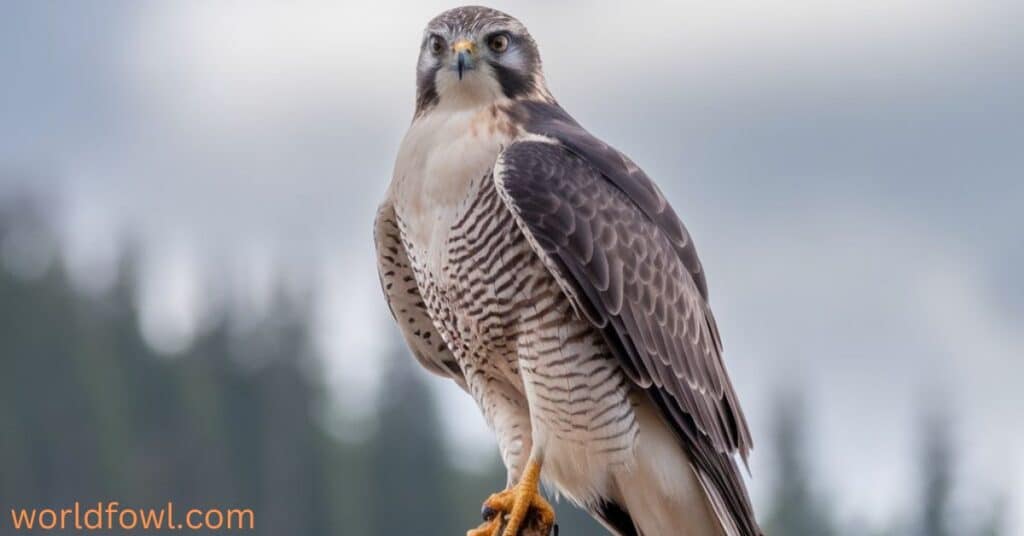
- Description: The Northern Goshawk is a large, powerful hawk, primarily found in coniferous and deciduous forests. They have a wingspan of about 32 to 40 inches and can weigh between 1.5 to 3.5 pounds.
- Hunting Style: Northern Goshawks are expert ambush hunters, utilizing their strength and speed to surprise squirrels. They often hunt in pairs, coordinating their movements to corner and capture prey effectively.
- Diet: Besides squirrels, these hawks also target rabbits, grouse, and other small mammals. Their robust physique allows them to subdue larger prey, making them versatile hunters.
you may also like : Do Squirrels Eat Birds? Revealing The Ugly Truth
Other Hawks that Occasionally Hunt Squirrels
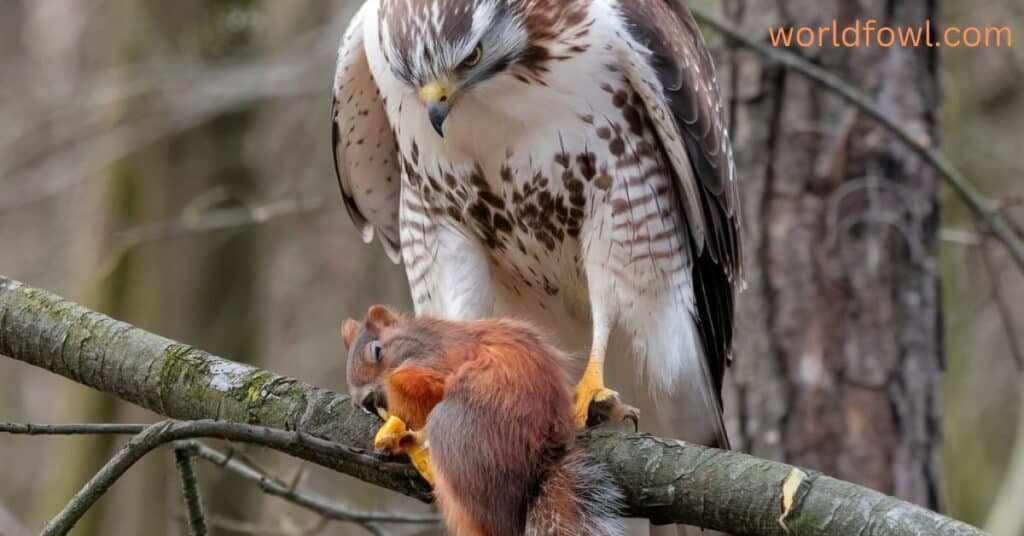
Some other hawk species may also target squirrels, although they are not specialized hunters. Here are a few examples:( Do Hawks Eat Squirrels )
- Red-shouldered Hawk: These hawks prefer hunting near bodies of water or heavily wooded areas. They may target squirrels when their usual prey, such as frogs or small birds, is scarce.
- Broad-winged Hawk: While primarily smaller in size, Broad-winged Hawks may take on juvenile squirrels, particularly during times of food scarcity. Their hunting strategies vary based on the availability of other prey.
Understanding the specific adaptations and behaviors of these hawk species helps highlight their efficiency as hunters and their relationship with squirrels.
Do Sparrowhawks Hunt Squirrels?
Overview of Sparrowhawks (Accipiter nisus)
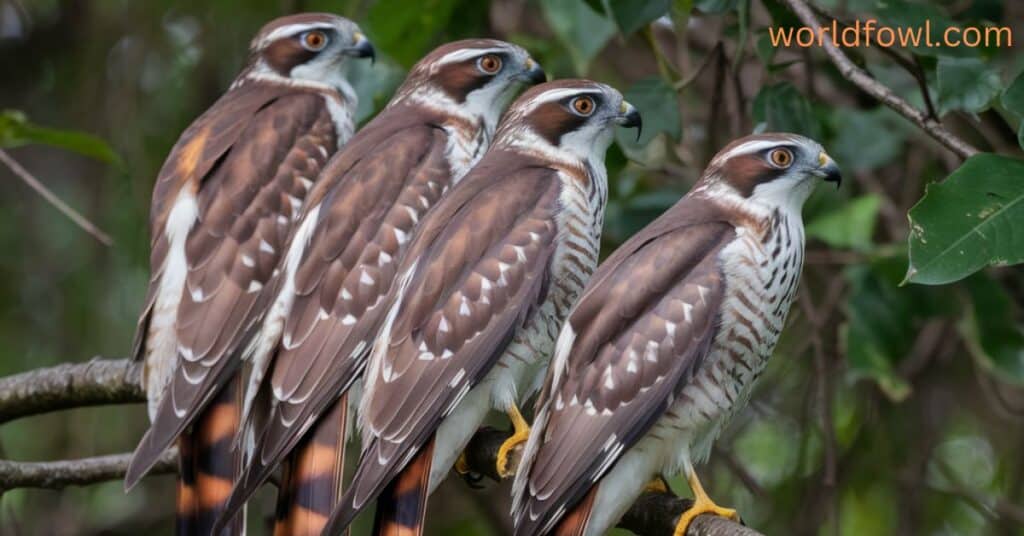
Sparrowhawks are small hawks primarily found in Europe and Asia, known for their exceptional hunting skills focused on avian prey. Their relationship with squirrels differs significantly from larger hawks.
- Hunting Preference: Sparrowhawks primarily target smaller birds, such as sparrows and finches, rather than mammals like squirrels. Their hunting style involves quick, agile flight to catch birds on the wing.
- Limitations: Sparrowhawks’ smaller size and lighter build limit their ability to capture and kill squirrels effectively. Their talons and beaks are adapted for small birds rather than the robust anatomy required for larger prey like squirrels.
Exception
In rare cases, Sparrowhawks may attack young or injured squirrels, particularly when their preferred avian prey is scarce. However, these instances are exceptions rather than the rule, as Sparrowhawks generally focus on smaller, more manageable prey.
you may also like : Why Don’t I Hear Mourning Doves Anymore? Reasons & Misconceptions
Do Hawks Hunt Live Squirrels or Scavenge on Dead Ones?
Preference for Live Prey
Hawks predominantly hunt live prey, including squirrels, due to several factors:
- Natural Instincts: Hawks are built for hunting, with adaptations that enable them to pursue and capture live animals. Their instinctive drive to hunt is hardwired into their behavior.
- Nutritional Value: Fresh prey is more nutritious than carrion, providing essential proteins, fats, and other nutrients that hawks need for optimal health and energy.
Scavenging Behavior
While hawks prefer hunting live squirrels, they may resort to scavenging when necessary:
- Food Shortages: During harsh weather or food scarcity, hawks might scavenge dead squirrels or other carrion to survive. This behavior is more common among species like Red-tailed Hawks and Broad-winged Hawks.
- Opportunistic Feeding: When faced with the choice between fresh prey and carrion, hawks will typically choose fresh kills if available. However, they will scavenge when survival demands it.
Understanding the hunting habits of hawks provides valuable insights into their behaviors and survival strategies.
Hunting Techniques of Hawks
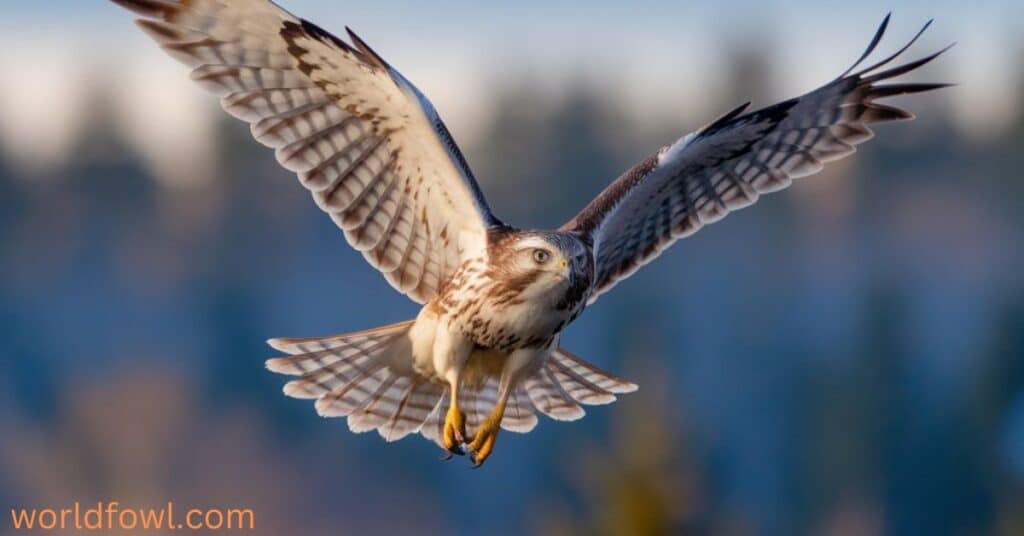
Hawks employ various strategies and techniques to hunt and kill squirrels. Here are some notable methods:
Spotting and Diving
- High Perches: Hawks often perch in tall trees or on poles, scanning the ground for movement. Their exceptional eyesight allows them to detect the slightest movement, giving them an advantage.
- Diving Speed: Once a squirrel is spotted, hawks can dive at incredible speeds, sometimes reaching 120 mph. This swift descent increases their chances of successfully capturing their prey before it can escape.
Ambush Tactics
- Stealth: Hawks like Cooper’s Hawks excel at using their surroundings for cover, waiting to surprise unsuspecting squirrels. They may hide behind foliage or low branches, remaining unseen until the perfect moment to strike.
- Close Quarters: This hunting technique is particularly effective in densely wooded areas, where their agility allows them to navigate through branches and vegetation to reach their target.
Chase and Pursuit
- Agility: Northern Goshawks are known for their remarkable ability to chase squirrels through dense foliage. Their speed and agility enable them to keep up with prey, even in challenging environments.
- Group Hunting: Some hawks may hunt in pairs or family groups, coordinating their movements to increase their chances of capturing prey. This collaborative approach can be particularly effective when targeting larger animals.
Physical Adaptations for Hunting Squirrels
The effectiveness of hawks as predators is largely due to their physical adaptations. Here’s a summary of key adaptations that facilitate hunting:
| Adaptation | Purpose |
| Acute Vision | Spotting small movements from great distances |
| Powerful Talons | Gripping and killing prey with deadly force |
| Hooked Beak | Tearing into flesh for efficient feeding |
| Muscular Wings | Maneuverability and speed during dives and pursuits |
These adaptations make hawks highly efficient hunters, capable of taking down prey like squirrels swiftly and effectively.
Why Do Hawks Prefer Squirrels Over Other Prey?
Squirrels represent a favorable prey choice for hawks due to several reasons:
Nutritional Benefits
- Protein and Fat Content: Squirrels provide a balanced meal, essential for energy replenishment. Their rich nutrient profile helps hawks maintain their strength and stamina, especially during breeding seasons or harsh winters.
- Sustaining Meals: A single squirrel can provide sustenance for a hawk for a day or more. This high caloric intake is beneficial for hawks as they prepare for energy-intensive activities like nesting and territorial defense.
Visibility and Accessibility
- Easy to Spot: Squirrels are often seen in open areas or on tree trunks, making them easy targets for hawks. Their natural behaviors, like foraging and climbing, expose them to predation.
- Daytime Activity: Their activity during the day aligns well with hawks’ hunting schedules. As both squirrels and hawks are diurnal, this synchronicity allows for efficient hunting opportunities.
Abundant Populations
- High Numbers: Squirrels are plentiful in urban and rural environments, providing a consistent food source for hawks. Their adaptability to various habitats means that hawks can rely on them as a primary food source.
- Low Energy Expenditure: With easy access to prey, hawks do not need to expend excessive energy hunting. This efficiency allows them to conserve energy for other vital activities, such as mating and rearing young.
you may also like : UK Eagle Species – The Complete Guide To Eagles In UK Countries
Understanding the reasons behind hawks’ preference for squirrels offers insight into their hunting behavior and ecological roles. ( Do Hawks Eat Squirrels )
Attracting Hawks to Your Yard
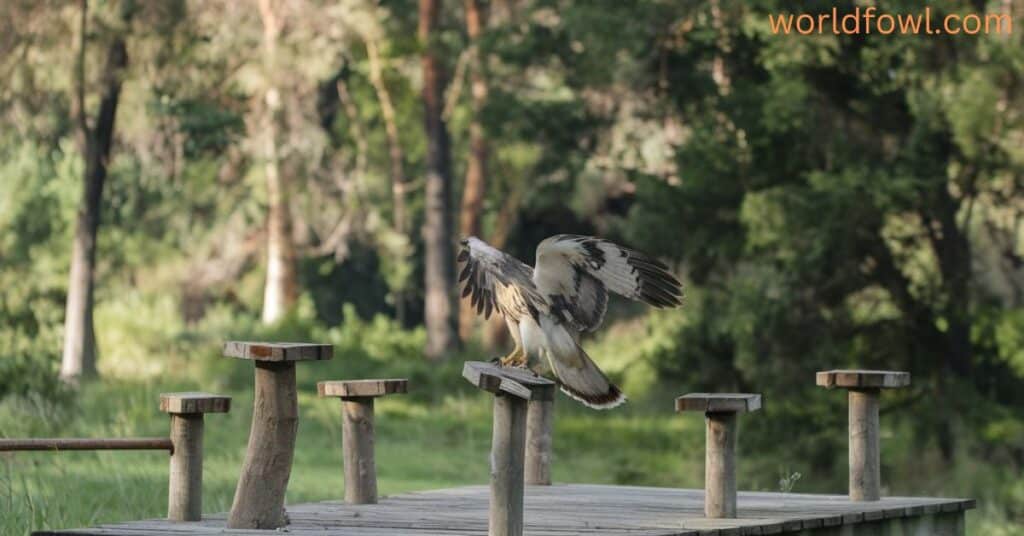
If you’re interested in observing hawks, creating a suitable environment in your yard can help attract them. Here are some effective strategies to make your yard more hawk-friendly:
Setting Up a Hawk-Friendly Environment
- Establish Perching Spots: Install tall poles or plant large trees to provide natural perches for hawks. These vantage points will give hawks a place to survey their surroundings for potential prey.
- Open Spaces: Maintain areas with minimal vegetation to give hawks clear sightlines for hunting. Open patches can serve as ideal hunting grounds, allowing hawks to spot movement easily.
- Food Sources: Consider adding bird feeders to attract small birds, which, in turn, can attract hawks looking for prey. A diverse array of birds in your yard can create a natural hunting ground for hawks.
Pet Safety Tips for Hawk-Visited Yards
If you have small pets, follow these guidelines to ensure their safety:
- Supervise Pets: Always keep an eye on small pets when they are outdoors. Close supervision can help prevent potential hawk attacks, especially on pets weighing less than five pounds.
- Provide Shelters: Use covered enclosures to protect pets from hawk attacks. Creating safe spaces for your pets can significantly reduce their vulnerability to aerial predators.
By understanding how to attract hawks while ensuring the safety of your pets, you can create a balanced environment that supports local wildlife.
Other Animals That Hawks Target
While squirrels are a common prey item, hawks hunt a variety of animals based on their environment and the availability of food. Here’s a look at some common prey types that hawks may target:
| Prey Type | Details |
| Small Birds | Hawks commonly hunt sparrows, starlings, and pigeons, using their speed and agility to catch these agile creatures. |
| Rodents | Mice, voles, and rats are frequent targets, providing a high-protein meal that is easily accessible in many habitats. |
| Reptiles | Hawks may also include small snakes and lizards in their diet, particularly in areas where these reptiles are abundant. |
| Insects | In times of scarcity, hawks may hunt insects, showcasing their adaptability to varying food availability. |
Understanding the diverse diet of hawks illustrates their adaptability and role in controlling various prey populations within their ecosystems.
When Do Hawks Hunt?
Hawks are primarily diurnal, meaning they hunt during the day. Their hunting patterns often align with the activity levels of their prey, maximizing their chances of a successful hunt.
Hunting Patterns for Common Prey
- Squirrels: Most active in the early morning and late afternoon, making these prime hunting times for hawks. The increased movement of squirrels during these hours provides hawks with ample opportunities to catch their prey.
- Birds and Rodents: Different species are active at various times, so hawks adjust their hunting schedules accordingly. For example, some birds may be more active in the early morning, while rodents might emerge during twilight hours.
Hawks’ ability to adapt their hunting patterns based on prey activity is crucial for their survival and success as predators.
you may also like : Finches In Georgia – The Complete Guide To 5 Georgia Finches
Frequently Asked Questions About Hawks and Squirrels
Do all hawks eat squirrels?
Not all hawks actively hunt squirrels. While species like the Red-tailed Hawk and Cooper’s Hawk are more likely to target squirrels due to their size and strength, other hawks may focus on different prey based on their hunting strategies and habitats.
Are hawks dangerous to pets?
Yes, hawks can pose a threat to small pets, particularly those weighing less than five pounds. It’s essential for pet owners to take precautions, such as supervising outdoor activities and providing safe shelters, to protect their animals from potential attacks.
How do hawks kill squirrels?
Hawks use their sharp talons to puncture vital organs and secure their prey. The force and precision with which they strike allow them to immobilize squirrels quickly, minimizing the chance of escape.
Conclusion
In conclusion, do hawks eat squirrels? Absolutely! The relationship between hawks and squirrels exemplifies the intricate predator-prey dynamics in nature. Through their remarkable adaptations and hunting strategies, hawks play an essential role in regulating squirrel populations and maintaining ecological balance.
Whether you’re a birdwatching enthusiast or a nature lover, understanding this interaction deepens our appreciation for wildlife and the delicate balance within ecosystems. Observing hawks in action reveals the fascinating complexities of their hunting behaviors and the impact they have on their prey, such as squirrels. The relationship between these species is a testament to the intricate web of life that exists in our natural world, showcasing both the beauty and brutality of nature.

Henry James is a seasoned blogger and a passionate storyteller on “World Fowl.” With years of experience crafting engaging content, he brings a unique blend of expertise and creativity to his writing. Henry specializes in exploring diverse topics with depth and clarity, captivating readers worldwide.

